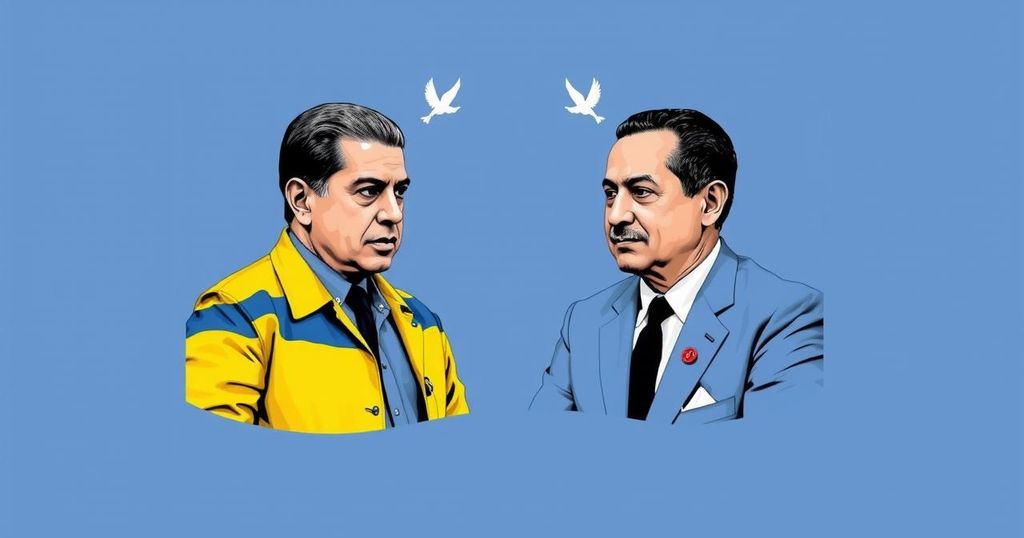US Imposes Sanctions on Maduro Allies Following Disputed Election

The United States has imposed sanctions on 21 more allies of President Maduro, claiming they participated in the repression after July’s disputed election. The U.S. has recognized opposition candidate Edmundo González as president-elect and has placed further visa restrictions on those involved in the alleged repression. Additionally, there are discussions in Venezuela about categorizing economic sanctions as crimes against humanity.
The United States has enacted sanctions on an additional 21 associates of Venezuelan President Nicolás Maduro, alleging their involvement in acts of repression following the disputed presidential election conducted in July. This recent action by the Department of the Treasury targets high-ranking security and governmental officials, including the head of the corrections agency and the director of an intelligence service, adding to a substantial list of sanctioned Venezuelans, which includes prominent figures such as judges and prosecutors.
Following the election, President Maduro proclaimed victory; however, details regarding the vote counts supporting his claims remain undisclosed. In a contrasting move, the Biden administration has recognized Edmundo González, a Venezuelan opposition candidate, as the country’s “president-elect.” As tensions mount, further visa restrictions have been imposed on individuals identified as having participated in the repression of Venezuelans post-election.
In September, after a warrant was issued for his arrest, González fled Venezuela to seek exile in Spain. He asserts that he had won the presidential election by a significant margin, representing the country’s major opposition parties. Earlier sanctions against 16 of Maduro’s allies were implemented, highlighting their alleged roles in vote obstruction and human rights violations. Despite these sanctions, the ongoing influence of Maduro’s loyalists within the Venezuelan government remains a significant concern.
On another front, Venezuelan legislators are currently discussing a bill that would designate economic sanctions as a crime against humanity, suggesting potential consequences for individuals supporting such measures. This initiative underscores the heated atmosphere surrounding political dissent in the country.
The political situation in Venezuela has been fraught with contention, especially since the disputed presidential election in July, where President Nicolás Maduro claimed victory without providing vote tallies. The United States has taken a strong stance against Maduro’s administration, imposing consecutive rounds of sanctions in response to alleged human rights abuses and election fraud. The recent sanctions and the recognition of opposition leader Edmundo González signify a shift in U.S. foreign policy towards increased support for Venezuelan opposition figures as the country grapples with its governance stability and human rights conditions.
In summary, the United States has intensified its sanctions regime against the Maduro regime, targeting additional officials linked to repression following the controversial presidential election. The Biden administration’s recognition of opposition leader Edmundo González highlights its commitment to supporting democratic processes in Venezuela, despite the continued influence of Maduro loyalists. The legal discussions underway within Venezuela regarding sanctions could further complicate the already tense political landscape as the nation seeks resolution to its governance crisis.
Original Source: abcnews.go.com








